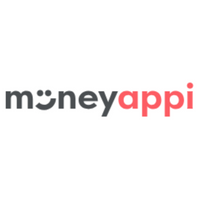Microsaving today, retirement tomorrow: Engaging Gen Z through small wins
For Generation Z, retirement often feels too abstract to matter. Forty years away, wrapped in jargon, and competing with more immediate financial pressures.
But disengagement isn’t the same as apathy. Many Gen Z employees want to be financially savvy; they just need a different approach. By shifting our focus to “micro-engagement” - small, immediate actions that feel relevant today - we can help them build habits that lead naturally to long-term security.
The real challenge: Present bias meets pensions
Research shows Gen Z faces a unique blend of barriers. Rising living costs, average student debts of around £53,000, and slow wage growth make long-term saving a lower priority.
According to the Pensions Policy Institute, only 28% of 20–24-year-olds are on track for a moderate retirement income.
At the same time, a Standard Life study found 61% of Gen Z are comfortable discussing finances with friends, and 71% with family, showing they’re not avoiding the topic. The issue is that traditional pension communications don’t match their behavioural drivers: immediacy, visibility, and alignment with personal values.
Some even have unrealistic expectations. Nearly a quarter expect an inheritance to fund retirement, which is far from guaranteed.
Why micro-engagement works
Behavioural psychology has long shown the power of small wins. Building a habit starts with something manageable and rewarding, then scaling up.
BlackRock research found that 95% of Gen Z like the idea of “salary sidecar” schemes – the automatic transfers of small amounts into a separate savings pot. This is because the results are visible and the process requires no extra effort.
By starting with short-term goals that feel relevant, like saving for a festival, a holiday, or an emergency cushion, we create an on-ramp to bigger goals, such as pensions.
Practical micro-engagement tactics for HR teams
Here are four ways HR and benefits professionals can reframe retirement saving for Gen Z, without overhauling existing benefits structures:
- Everyday savings sidecars: Enable a small portion of pay (1%-2%) to flow automatically into a separate account earmarked for short-term needs. Once the habit sticks, highlight how the same mechanism can apply to longer-term savings, including pensions.
- Simplified, visual messaging: Gen Z respond to concise, visual communication, such as short videos, infographics, and in-app nudges rather than dense written guides. A quick animation showing how £1 a day compounds over time can make the concept more tangible than a 20-page pension handbook.
- Micro-rewards and gamification: Incorporate streak tracking, achievement badges, or small perks when saving milestones are hit. Immediate feedback reinforces the “habit loop” and keeps motivation high.
- Goal-based framing: Anchor saving around near-term life events rather than distant retirement. This makes the act of saving feel relevant today and opens the door to later conversations about longer-term planning.
Why this matters for employers
Financial stress directly affects engagement and productivity. Studies show workers experiencing financial strain lose around eight hours of productive time per week because of stress and distraction.
For younger employees, who may already be navigating job instability, housing costs, and debt, small improvements in financial resilience can have an outsized effect on workplace wellbeing.
By introducing accessible micro-saving tools and linking them to achievable goals, employers can:
- Reduce money-related anxiety
- Improve retention and morale
- Build a culture where financial wellbeing is part of everyday life
Most importantly, they can plant the seeds for pension awareness and readiness, without requiring employees to leap straight into a conversation about retirement decades away.
From micro-wins to macro impact
Pension engagement for Gen Z doesn’t have to start with pensions. In fact, it probably shouldn’t. By focusing on small, achievable, and immediately rewarding actions, employers can meet Gen Z where they are - living in the now - while laying the groundwork for a secure future.
Micro-engagement is more than a tactic; it’s a bridge. Start with the first step, and the destination, whether that’s a house deposit, financial independence, or a comfortable retirement, becomes much more attainable.
Supplied by REBA Associate Member, Moneyappi
Proactive Financial Wellbeing, made simple, measurable, and for everyone.








